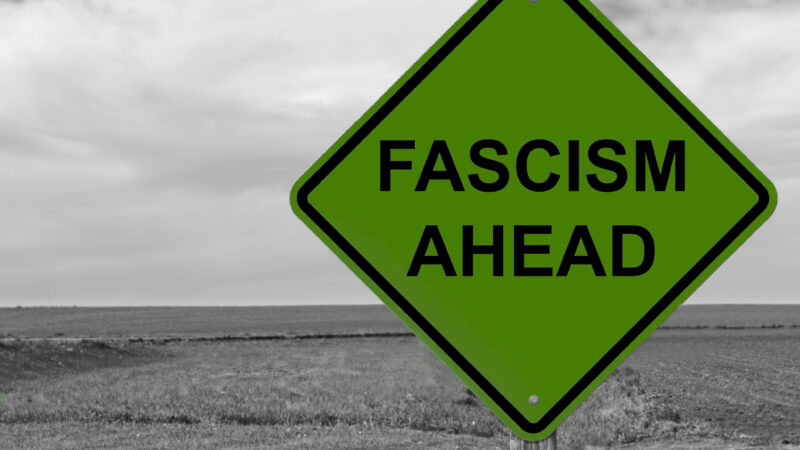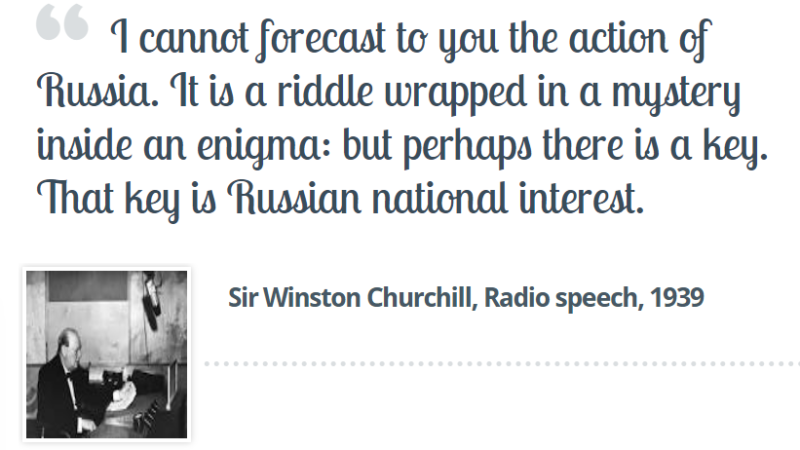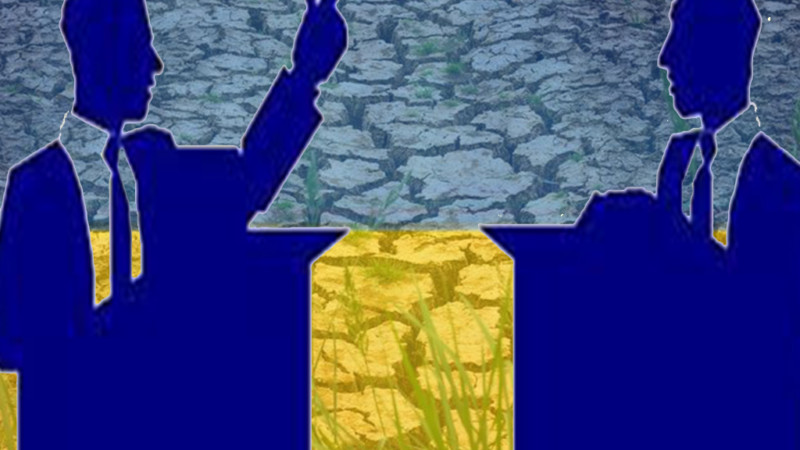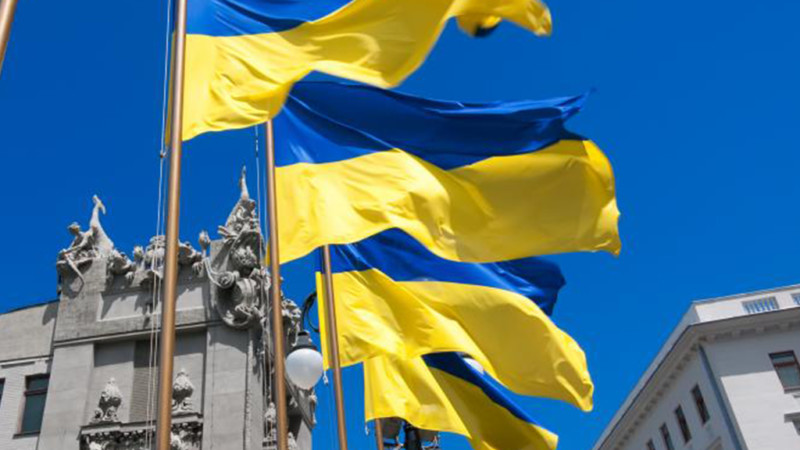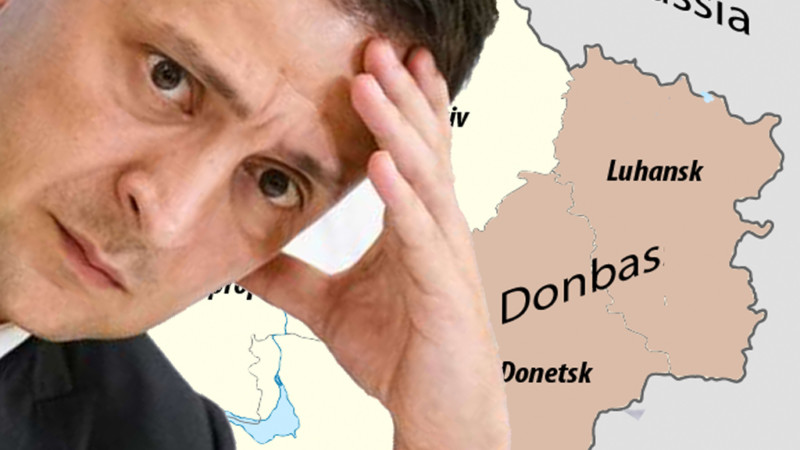Seven Truths of Russian Neo-imperialism: Unceasing Expansion

Putin’s Russia suffered a bitter defeat in the first weeks of the Russian-Ukrainian war. However, the Kremlin will keep on trying to place Ukraine into its orbit, as well as project its influence further into the Western world. Unceasing and dynamic aggrandizement under strong leadership is one of the most functional approaches to statecraft in Russia, tested by history and implemented today. In this light, Ukraine has become the vanguard of the Western world. No European nation should feel safe, as there are no limits to the Kremlin’s appetites.
Seven Truths
In a recent publication for the Forum I demonstrated that the Russians—both elites and ordinary citizens—feel at ease pursuing revisionist, neo-imperial, and neo-colonial policies.[1] For centuries, they have rarely demonstrated honest remorse for the eradication of indigenous lifeways in the process of growing their state. Oppositely, history exemplifies that the Russians found expansionism to be a functional and successful modus operandi. The war against Ukraine since 2014 is the latest and most eloquent illustration.
The logic behind contemporary Russian neo-imperialism was not devised in a day. For this analysis, I did my best to pinpoint historical developments, declarations, and decisions that provided the backbone to the mentioned logic—the “truths” of Russian neo-imperialism.
First truth: Russians have developed and promote an assertive and external-oriented outlook
It was Empress Catherine who claimed: “I have no way to defend my borders but to extend them.”[2] This claim established a tradition in Russian statecraft. On the one hand, decision makers believe that an expansionist policy transcends into the security domain as “buffer zone” augments between the Russian core and “external foes.” On the other hand, Russian citizens concur that new territories make their state stronger and, thus, unlock new opportunities, which redirects their attention from deplorable domestic affairs.
Autocratic Russian rule has often been legitimised by territorial expansion. “Only great leaders bring great victories,” isn’t that how it goes? The aggrandizement also serves as a surrogate satisfaction for the Russians as they enjoy the feeling of imperial greatness, international respect, or even international fear. In their turn, remaining unchallenged, leaders stay in power for decades and can accomplish long-term objectives. This logic of governance was common for the Muscovite tsars, Great Russian emperors, Soviet general secretaries, and now for the post-Soviet President Putin.
In the last decade, the Russian media has paid incomparably more attention to events in Ukraine than in Russia. Thus, the Russians were better informed—or misinformed—about Ukraine than about their own country. Moreover, they also had a strong—and often distorted—opinion about Ukraine. Finally, as of today they continue to justify meddling in Ukraine’s sovereign affairs, as this looks appropriate from a wider securitization perspective. It is uncommon for the external-oriented Russians to feel remorse for the crimes their soldiers and leaders commit in the “enemy lands” to the west.[3] This said, Ukraine’s efficient extermination of invading troops and a wide array of Western sanctions both came as a shock to Russians, especially to President Putin.
Second truth: Russians are eagerly mobilized to stand for what they believe is theirs
In 1853 Emperor Nicholas I confirmed the inclusion of the island of Sakhalin and Amur lands into the empire by stating: “Once the Russian flag is raised over it, let it never be lowered!”[4] Exhausted by the Opium War, China agreed to recognise Russian expansion by signing the Treaty of Aigun (1858) and the Convention of Peking (1860). This particular phrase by Nicholas I sends a powerful symbolic message: Russians eagerly plant their flags in lands that they can reach; as well, they perceive all lands where their flag has ever been planted as being inherently Russian.
That phrase by Nicholas I was widely used in Russian social networks when Crimea was annexed in 2014. The public consensually believed that a historical part of Russia was returned to its proper ruler. Today, the logic behind this phrase may also explain their no less popular belief: that Ukraine has never been a proper state. The imaginary Russian flag is still waving over Kyiv in the minds of many Russians. That is why they are stubbornly refusing to see the fierce Ukrainian resistance to the Russian troops.
One of the key figures of Ukrainian nationalism, Yuri Lypa, stated in the 1930s that the Russians had often gladly joined aggrandizing ventures: “War and only war was the idol of imperial rule. Wars could be easily started because the majority of the population supported them eagerly: peasants went to pitched battles against the administration on their lands, that they were reluctant, or even looked with hope to gain new territories.”[5] Today, the Russians continue responding positively to recruitment for expansionist campaigns.
Third truth: Russians invariably regard themselves as benefactors on a sacred mission
In the mid-19th century Dostoyevsky wrote of Russians as a God-bearing people (narod-bogonosets)—the only world nation possessing inherent value (vsetsennost), comprehensive diversity (vsechelovechnost), and a sincere desire for total reconciliation (vseprimirimost). Dostoyesky believed that these features reflected the essence of “being Russian” and provided a benchmark to assess the Russian contribution to world culture.[6]
Dostoyevsky juxtaposed the spiritual integrity of Russia with the chaos and degradation of Western Europe of his time. He portrayed Westerners as historical troublemakers who conducted social experiments, undermined the harmony of their Christian traditions, and inflicted much self-harm (e.g., through inventing the anti-Christian idea of socialism). Therefore, it was the sacred mission of the God-bearing Russians to interfere and introduce ecumenical harmony every time the world went mad.
Dostoyevsky’s ideas have not vanished today. One of the masterminds of the United Russia (Iedinaia Rossiia) Party, Egor Kholmogorov, claims that only his country possesses enough strength and vigour to act for the good of all humankind.[7] Therefore, Russia has the transcendent right to expand and create a sort of harmonious space governed by Russians.[8] According to Kholmogorov, “Russians always ‘defend,’ even when it might seem that they attack.”[9] These narratives of “defending-by-attacking” and “protecting humankind” can clearly be heard in Russian justifications for the war in Ukraine.
Fourth truth: Russians believe only other Russians, and Russians can never be wrong
In the late 1940s George Kennan, the US Ambassador to the USSR, concluded that the Kremlin leadership could never allow itself a mistake: “On the principle of infallibility there rests the iron discipline of the Communist Party. In fact, the two concepts are mutually self-supporting. Perfect discipline requires the recognition of infallibility. Infallibility requires the observance of discipline.” In this context, even if the Kremlin decision makers make a mistake, it may easily be propagated as an achievement. The Kremlin has always possessed the power to invent truth for the Russians: “The fact that the leadership is at liberty to put forward for tactical purposes any particular thesis which it finds useful to the cause…means that truth is not a constant but is actually created…It is nothing absolute and immutable—nothing which flows from objective reality.”[10] In this light, all Putin’s claims about the necessity to “denazify” Ukraine, liberate Russian-speakers, and merge two nations into one are invented truths. Invented but nevertheless supported by Russians, who disregard all arguments that contradict the messages from the Kremlin.
Today strong leadership and projected infallibility are necessary prerequisites to keeping the multi-ethnic Russian state together. If the leadership appears weak or becomes incapable of delivering victories, domestic integrity in Russia will likely shatter and regional separatism will grow. Therefore, a decisive victory of Ukraine in the ongoing war would pose a major threat for Russia in its contemporary architecture.
Kate C. Langdon and Vladimir Tismaneanu argue that the Russians willingly choose to trust Putin, even if they suspect that he may lie. Popular support for the President grew after the start of the war in Ukraine, confirming that Putin is the product of Russian society: “As the leading face of Russia, Putin’s success is interpreted as the national population’s success.”[11] Therefore, even if a different person becomes the President of Russia, little may change in the state’s expansionist objectives. Unless the administrative architecture of the state changes.
Fifth truth: Russian aggrandizement is cautious, complex, and irreversible
It would be a major mistake to claim that Russia seeks to expand by any means possible. On the contrary, Russia expands because it acquires the proper opportunity. This opportunity may emerge either as a consequence of favourable circumstances or as a result of the deliberate activities of leadership in the diplomatic, military, cyber, and other domains.
In the 1940s Ambassador Kennan wrote that Soviet foreign policy was cautious, adaptable, and deceptive. It was like “a fluid stream which moves constantly, wherever it is permitted to move, toward a given goal.”[12] In Long Telegram, he also wrote that “Soviet power…is neither schematic nor adventuristic. It does not work by fixed plans. It does not take unnecessary risks. Impervious to the logic of reason, it is rather highly sensitive to the logic of force. For this reason, it can easily withdraw—and usually does, when strong resistance is encountered at any point.”[13]
Today’s Kremlin combines strategic long-term planning with spontaneous ruthless actions. Lest its objectives be concealed or misrepresented, the Kremlin always waits until the right moment to strike. The whole confusion preceding the war in Ukraine serves as a good example. Different Western analysts made different predictions and took different readings from Putin’s words. Even President Zelensky downplayed the warnings of US intelligence and advised against spreading panic on the eve of the invasion. This said, all analysts agreed that the Russians would invade Ukraine. Today, one of the most efficient options to stop Russian aggression is to inflict hefty damage on attacking troops, which has taken the Kremlin by surprise.
Sixths truth: Russians are willing to embrace responsibility for other nations
This truth was formulated in 1968 after the Soviet invasion of Czechoslovakia. In his article for Pravda, Leonid Brezhnev denied the right of the Soviet bloc states to determine their own destinies: “any decision of [socialist governments] must damage neither socialism in their country nor the fundamental interests of the other socialist countries nor the worldwide workers’ movement…This means that every Communist Party is responsible not only to its own people but also to all the socialist countries and to the entire Communist movement…The sovereignty of individual socialist countries cannot be counterposed to the interests of world socialism and the world revolutionary movement.”[14]
In other words, the Kremlin announced that it would serve as the ultimate authority in the area under its supervision (i.e., where its flag should never be lowered). Therefore, those regional developments that collide with the Kremlin’s interests and weaken its grip would be eradicated: “If the enemy plants dynamite under our house, under the commonwealth of socialist states our patriotic, national, and internationalist duty is to prevent this, using any means that are necessary.”[15] Some analysts define this approach as the “Big Brother” complex.
In the case of contemporary Ukraine, President Putin and his circle unilaterally took upon themselves to shape the future of a “brotherly” nation. Inter alia, the war in Ukraine started because Putin believed in its rightfulness and strategic importance as Ukraine “treacherously” alienated from Russia, “artificially” approached the West, and thereby ushered instability into the Kremlin-dominated world. Therefore, as seen from the Kremlin, this war was in the interest of both Russia and Ukraine—to correct the mistakes of the “younger brother” and bring things back to “normal.”
Seventh truth: Russians do not like compromises
In 2007, at the Munich Security Conference President Putin delivered one of the pivotal speeches of the modern era. He directly accused the West, and specifically the USA, of undermining the global security architecture, violating international law, and unilaterally projecting influence in the post-Communist space. Putin complained that the West had cheated on Russia and tried to sweep it into the corner. That was intolerable: “We very often…hear appeals by our partners…to the effect that Russia should play an increasingly active role in world affairs. In connection with this, I would allow myself to make one small remark. It is hardly necessary to invite us to do so. Russia is a country with a history that spans more than a thousand years and has practically always used its privilege to carry out an independent foreign policy. We are not going to deviate from this tradition today.”[16]
Putin’s speech demonstrated that the Russians remained open to all initiatives that might suit them but disagreed or distorted those that placed them in an uncomfortable position. In particular, most questionable are initiatives that curtail Russian neo-imperial expansion: the democratization of Ukraine, its associated membership in the EU, promotion of Ukrainian culture, NATO arms supply to Ukraine, and others.
Russians agree on compromises only on Russian conditions. Otherwise, the Kremlin will use “privilege to carry out an independent foreign policy,” up to launching military interventions. By the way, the Russian-Georgian war started a year after Putin’s speech in Munich.
What are the implications for Ukraine and the world?
Putin became too obsessed with neo-imperial truths and made too many mistakes. Therefore, if the dynamic of the hot phase of the Russian-Ukrainian war is maintained, Ukraine will likely win it. The major implication of Ukraine’s victory will entail a crisis of the Kremlin’s leadership and, consequently, a crisis of Russia’s neo-imperial identity. One should understand “the victory of Ukraine” here as the wide-scale destruction of Russian troops, which will make it impossible to hide from the public, alongside the massive impoverishment of ordinary Russian citizens. The tricky thing is, however, that being regarded by Russians as the “infallible source of truth,” President Putin may portray any progress in Ukraine and/or domestic resilience to the Western sanctions as a major success. Therefore, even if the Kremlin’s policies keep on being disastrous and fail to bring any positive result, Putin possess the mechanisms to invent “the victory,” stay in power, and keep the Russian system of governance intact.
In their fight, Ukrainians should not count on empathy or support from the Russians (excluding dissidents). At least, not before Putin gets publicly discredited as a victorious leader. The number of Russian soldiers killed will not seriously influence Russian public opinion; this number will be either concealed, reduced, or presented in the media as a necessary token of the “special operation.” Economic sanctions may have a moderate effect, too—they are the price to pay for “Great Russia” (unless this price becomes objectively unbearable and/or the state declares a default). The horrific destruction and deaths of civilians in Ukraine will likely not provoke massive disgust among the Russians—Putin is likely to portray these atrocities as a means of “denazification.”
If Putin preserves his victorious image in Russia, no post-Communist state is safe. In this context, one may recall the Russian ultimatum on demilitarization of Poland and other former Soviet republics, announced to NATO in December 2021. The neo-imperial and external-oriented outlook will encourage Russia toward further aggrandizement. Even East Germany may become a target with time, as the Russian/Soviet flag was once raised over it. This transforms Ukraine into a vanguard of the Western world and makes the ongoing war a pan-European one.
Paradoxically, if Putin becomes discredited and is removed from power then no guarantee exists that a new leader would revise neo-imperial truths; that he would not do so is more likely. A “strong hand in the Kremlin” is the expectation of Russian society. Therefore, the efficient way to curtail neo-imperialism resides in the Ukrainian victory and the subsequent administrative re-design of the Russian Federal state. Ultimately, this is a topic for another discussion.
So far, Ukraine is doing a great job of winning the war. Ukrainian armed forces have skilfully manoeuvred and destroyed Russian military equipment by the hundreds and stalled their offensive. Ukrainian resistance has undermined the food and fuel supply chains in the Russian rear. Ukrainian leadership and diplomacy have united the free world around their nation’s defensive struggle. Speaking of the free world, Ukraine has boldly joined its community. The sole fact of the war’s promulgation signified Russia’s assault on international law and sovereignty—indisputable values promoted by the West. The war also became an assault on Western security, as Russia stopped being a “normal country” with which compromise can be achieved. Not to mention that Russia’s external-oriented outlook will likely encourage new “soft” and “hard” expansions in the future, and that has become clear to world leaders today.
Therefore, the victory of Ukraine is in the interest of everyone. Everyone but Putin’s Russia.
[1] Kushnir, Ostap. “Russia’s neo-imperial powerplay in Ukraine: The factors of identity and interests.” Forum for Ukrainian Studies, 31 January 2022. https://ukrainian-studies.ca/2022/01/31/russias-neo-imperial-powerplay-in-ukraine-the-factors-of-identity-and-interests/
[2] van Herpen, Marcel H. Putin’s Wars: The Rise of Russia’s New Imperialism. London: Rowman & Littlefield, 2015, 17.
[3] “ ‘Spetsyal’naya voennaya operatsyya” na Ukrayini: otnoshenye rossyyan.” Russianfield. https://russianfield.com/netvoine
[4] Gelaev, Vladimir. “Gde Raz Podniat Russkiy Flag, Tam On Spuskatsia Ne Dolzhen.” Gazeta.ru, 14 August 2015. https://www.gazeta.ru/science/2015/08/13_a_7686922.shtml
[5] Lypa, Yuriy. Pryznachennia Ukrayiny. Kyiv: Olzhych Foundation, 1997, 25.
[6] Alekseev, Veniamin. “The Russian Idea: From Messianism to Pragmatism.” Russian Social Science Review 56, no. 3 (2015): 6.
[7] [7]Østbø, Jardar. The New Third Rome. Readings of a Russian Nationalist Myth. PhD diss., University of Bergen, 2011, 202.
[8] Kholmogorov, Egor. Russkii Proekt: Restavratsiia Budushchego. Moscow: Eksmo-Algoritm, 2005, 267.
[9] [9]Ibid., 280.
[10] Kennan, George F. “The Sources of Soviet Conduct.” In The Geopolitics Reader, ed. by Gearóid Ó Tuathail, Simon Dalby and Paul Routledge. London: Routledge, 1998, 62.
[11] Langdon, Kate C. and Tismaneanu, Vladimir. Putin’s Totalitarian Democracy. Cham: Palgrave Macmillan, 113.
[12] Kennan, George F. “The Sources of Soviet Conduct,” 62.
[13] Kennan, George F. “Long Telegram.” Wilson Center Digital Archive, 22 March 1946. http://digitalarchive.wilsoncenter.org/document/116178
[14] Brezhnev, Leonid. “The Brezhnev Doctrine.” In The Geopolitics Reader, ed. by Gearóid Ó Tuathail, Simon Dalby and Paul Routledge. London: Routledge, 1998, 74.
[15] Ibid., 75.
[16] Putin, Vladimir. “Speech and the Following Discussion at the Munich Conference on Security Policy.” President of Russia Official Web-page. 10 February 2007. http://archive.kremlin.ru/eng/speeches/2007/02/10/0138_type82912type82914type82917type84779_118123.shtml
